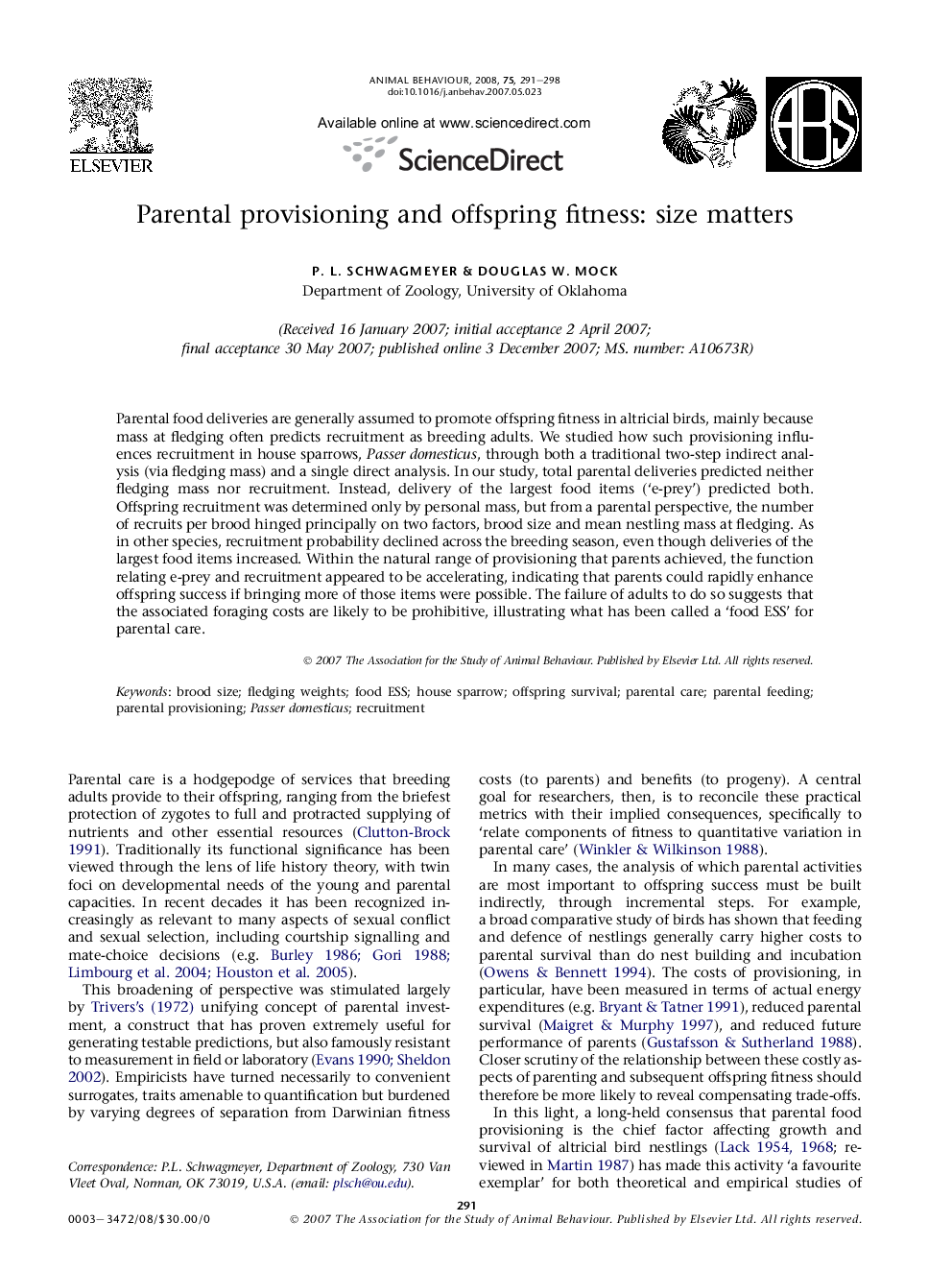| Article ID | Journal | Published Year | Pages | File Type |
|---|---|---|---|---|
| 2418978 | Animal Behaviour | 2008 | 8 Pages |
Parental food deliveries are generally assumed to promote offspring fitness in altricial birds, mainly because mass at fledging often predicts recruitment as breeding adults. We studied how such provisioning influences recruitment in house sparrows, Passer domesticus, through both a traditional two-step indirect analysis (via fledging mass) and a single direct analysis. In our study, total parental deliveries predicted neither fledging mass nor recruitment. Instead, delivery of the largest food items (‘e-prey’) predicted both. Offspring recruitment was determined only by personal mass, but from a parental perspective, the number of recruits per brood hinged principally on two factors, brood size and mean nestling mass at fledging. As in other species, recruitment probability declined across the breeding season, even though deliveries of the largest food items increased. Within the natural range of provisioning that parents achieved, the function relating e-prey and recruitment appeared to be accelerating, indicating that parents could rapidly enhance offspring success if bringing more of those items were possible. The failure of adults to do so suggests that the associated foraging costs are likely to be prohibitive, illustrating what has been called a ‘food ESS’ for parental care.
